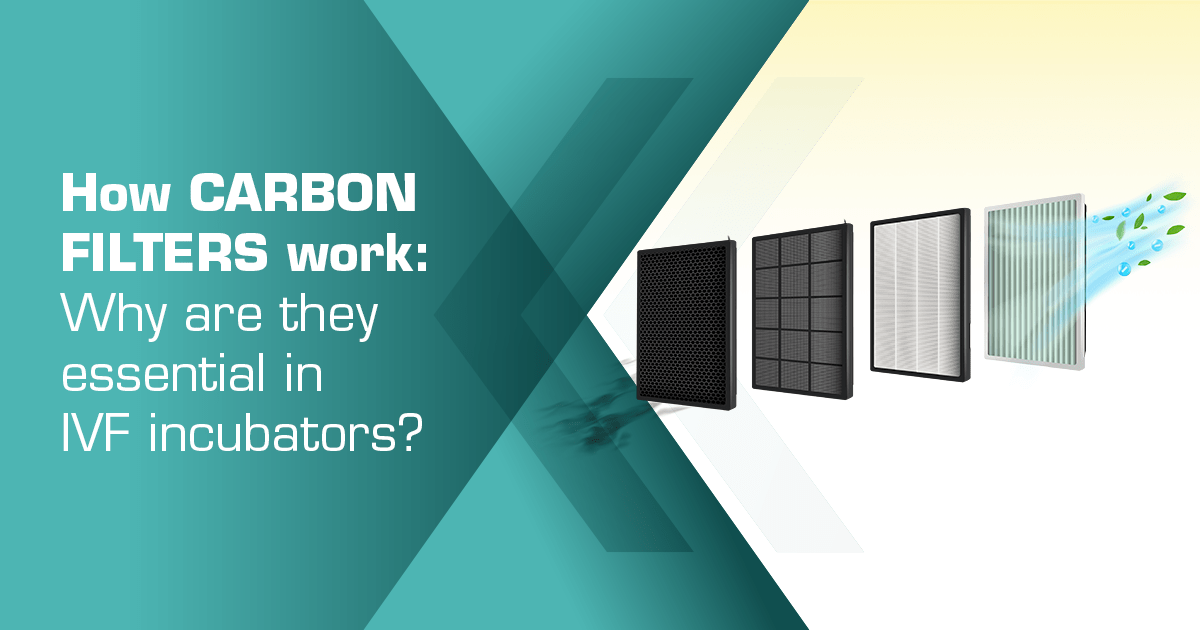Know more about how CARBON FILTERS work: Why are they essential in IVF incubators?

Carbon filters are used to remove toxic gases, hazardous fumes, and odors. These filters are constructed from high-quality carbon pellets and durable chemical-resistant cases.
Activated carbon has special properties that permit it to eliminate volatile organic compounds (VOCs), odors, and other gaseous pollutants from the air. It is able to do this in a way that is different from other filters like HEPA that only filter particle pollution from the air. These carbon filters trap gaseous pollutants via the process of adsorption. During the adsorption process, gas molecules stick to the surface of the carbon granules. When carbon is activated, its surface and adsorption site increases allowing the absorbance of more contaminants like the various VOCs.
Two primary methods by which carbon is activated:
Steam activation: This is carried out using steam at temperatures of between 800°C and 1000°C wherein instant water - gas reaction occurs, causing the carbonized material to gasify. After which, air is incorporated to burn out the gasses, without burning the carbon. Carbon activated via steam produces an ideal characteristic which is a fine pore structure. This is perfect for adsorbing both liquid phase and vapor phase compounds.
Chemical Activation, on the other hand, requires the carbon to be filled initially with a potent dehydrating agent like phosphoric acid paste or even zinc chloride. This involves heating the paste to temperatures between 500°C and 800°C in order to activate the carbon. The resultant product is an activated carbon with very open pore structure, making it more suitable for adsorbing big molecules.
Air quality: A crucial factor in in vitro fertilization (IVF)
Air contaminants that range from volatile organic compounds (VOCs) to particulate materials like pollens, and or allergens, are regarded damaging to embryo growth and development in vitro. Time and time again, studies have revealed that factors such as air quality, gas concentrations, humidity, temperature, VOCs, and even light in an IVF laboratory are recognized to have an effect on oocytes and embryos. The growth and development of an embryo is impacted by the direct attachment of VOCs to the DNA of an embryo, eventually terminating its growth. Moreover, certain VOCs are also linked to the sperm cells’ DNA fragmentation.
Esco Medical Incubators (MIRI®, MIRI® TL, and Mini MIRI®) have a reliable gas mixing system that allows gas phase flexibility. It has a gas mixer that provides total control over CO2 and O2 concentration levels, and at the same time, allows flexibility over what gas input is desired. The high quality airstream is achieved through the HEPA/VOC filter, wherein gas in the incubator is continuously recirculated. This ensures the circulation of the highest possible quality of air to the cultures.